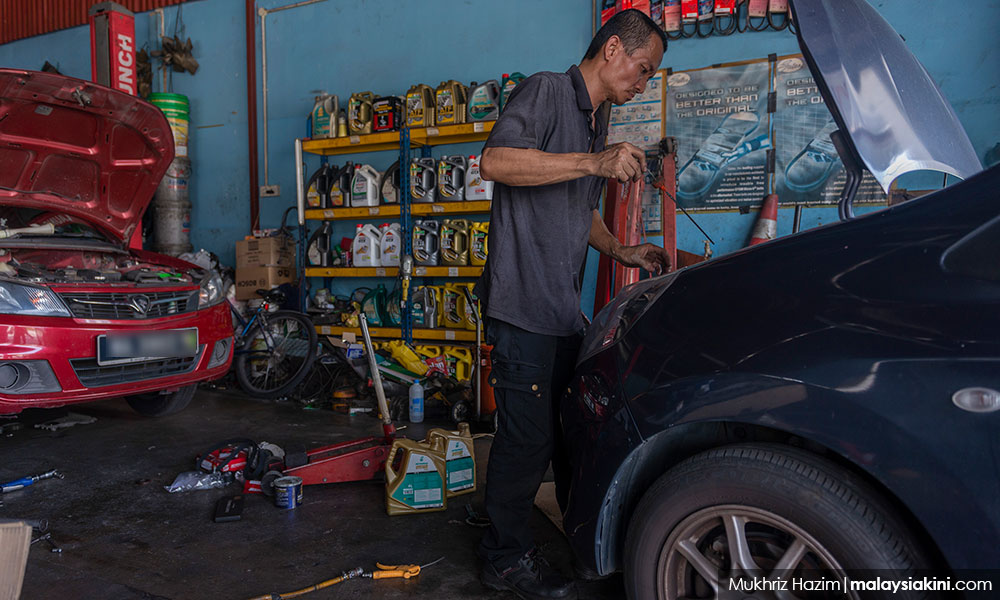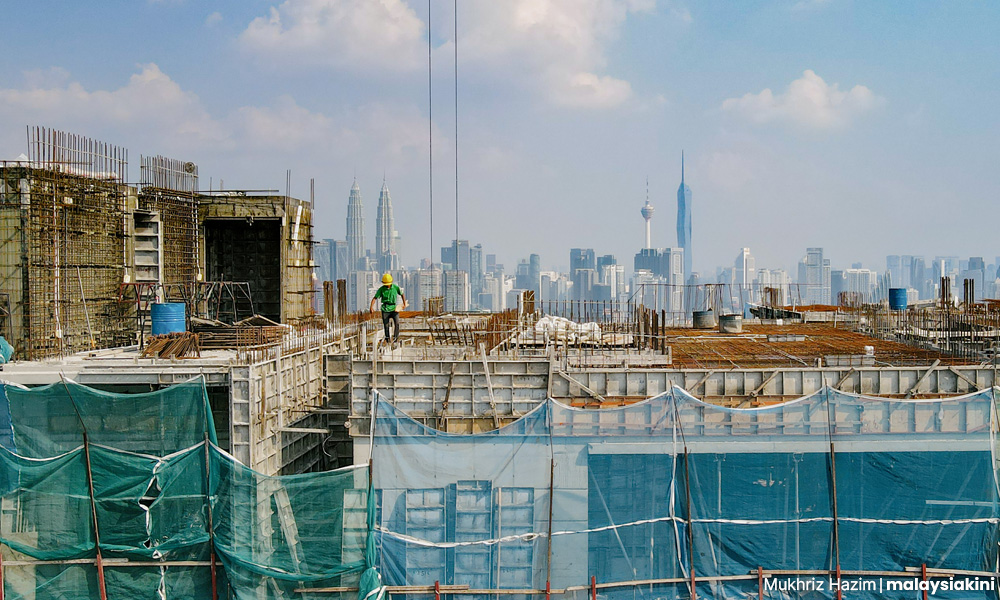I remember staying at a rough Malay backpackers’ place during my first trip to Tioman Island in 1984. When I ordered a simple mee goreng, it took one hour for the food to arrive.
Fast forward to 2020, a different Malay stall in the same part of Tioman is churning out food in a fast and furious way. The backpackers' hovels have been replaced with nifty resorts, mostly run and owned by Malays.
In decades past, former prime minister Dr Mahathir Mohamad used to lecture the Malays about being “backward” at the Umno general assemblies.
But in my area of Petaling Jaya now, there are two Chinese and five Malay motorbike shops – and the latter are doing better. I repair my own Honda EX5 kapcai there as the service is good and prices are cheaper.
Successful Malays
When we drive along the highways, most billboard advertisements are aimed at the biggest market in the country: Malays. Various types of tudung (headscarves) are promoted along with food, health, and beauty products.
Contrary to the stereotype of being lazy, Malays are hard at work, dominating the business of food trucks and stalls.
They also operate massive places such as Satay Haji Samuri in Kajang, King's Char Koay Teow in Port Dickson and huge tom yam restaurants all over the country.
When driving north from Kuala Lumpur, I like to stop at Nasi Bamboo Sungai Klah in Sungkai, Perak. I've watched this place grow into a huge place that serves good food with factory efficiency via multiple counters to handle the crowds.
Premium tudungs and other “modest lifestyle” products have made waves both locally and internationally. These include brands like Duck (founded by entrepreneur Vivy Yusof), Naelofar and Siti Khadijah. All three have outlets in fancy shopping malls.
Then there are the celebrity online entrepreneurs, who built their fortune with savvy marketing of health and beauty products. These include Hasmiza Othman, better known as Datuk Vida, and D’Herbs empire founder Aliff Syukri Kamarzaman.
Aliff is not shy to show off his lavish home and lifestyle on his “Terlajak Laris” YouTube channel. As for Vida, her 18-year-old daughter went viral on TikTok recently when she boasted that she spends RM1.2 million per month!
@datoserividaofficialOloh anak mama lagi kayo dari mama loni 😱 hasil jual salmon skin ke tu @cikb_havoc66 @KACAK WORLD#fyppppppppppppppppppppppp#masukberanda#salmonskincikb#masukfypdong#masukfyppls#fypシ゚viral#foryoupage#masukberandafyp#fypage#gelakdsv♬ Funny video "Carmen Prelude" Arranging weakness(836530) - yo suzuki(akisai)
I also remember how Malaysian biz whiz couple Aeril Zafrel and Wawa Zainal, made a big splash on Instagram with a RM5.2 million French concept office building in March 2022.
So who says the Malays are bad at business? These superstar entrepreneurs prove that those with the right motivation, persistence, and skills can make it big - and flaunt it too.
Professionals, technicians
Apart from business people, there are so many Malay professionals nowadays - doctors, lawyers, accountants, bankers, engineers, etc.
All these success stories are in a different universe from the dinosaur mindset of Mahathir. I don't know what time warp the old man lives in, because he recently claimed that the Malay race will “disappear in 10 years” unless they “unite” - presumably under the umbrella of Perikatan Nasional that the old man has frog-jumped to.
This was rebutted by Rafizi Ramli, who pointed out that the Malays have succeeded in building a large middle class and professional class thanks to education.
Don't forget mechanics, caterers, renovation contractors, electricians, plumbers and technicians who repair fans, fridges and laptops. Some of them are self-employed entrepreneurs who post snappy advertisements on Facebook.

I remember going to three different phone repair shops in SS15 Subang Jaya because my Xiaomi Max 3 had a problem. The first two Chinese guys told me it was “not worth” doing. It was left to a third Malay technician to fix it.
I asked him how he learned his skills. He replied that he had signed up for an RM800 course on phone repair back in Kelantan. Well done!
In other words, Melayu sudah maju – the Malays have progressed. At least those who are willing to work.
Special rights
This is a far cry from the usual doomsday propaganda that sounds as if the Malays are a weak, helpless race that will “perish” unless certain politicians “protect” them.
Would a foreigner hearing this think that those leaders are “talking down” on the Malays? Does such incessant talk boost or hamper their self-confidence?
Does encouraging dependency make the Malays stronger or weaker? Rafizi pointed out that the real long-term threat to their economic well-being is not the non-Malays. Rather, it's competition from globalisation.
I have no objection to Malay special rights if that means helping poor Malay farmers, fishermen, or low-cost flat dwellers.
But can poor non-Malays also be considered “special” enough to receive some help? After all, how does giving scholarships to poor non-Malays, cash aid or Sumbangan Tunai Rahmah to B40 Chinese and Indians undermine “Malay rights”?

The government has enough money to help the poor of all races – if we stop corruption.
But I do wonder if “special rights” (like the seven percent bumi discount on properties) should be extended to those whose teenage daughters boast about spending RM1.2 million a month. Or those like Daim Zainuddin who hide hundreds of millions of ringgit in overseas tax havens?
Of course, the Malays can go even further. But what is the way forward?
Rafizi thinks that more Malays need to become real entrepreneurs, rather than just working for others, even in large companies.
He added that the old Mahathir model of propping up a few elite Malays failed when faced with the 1997 Asian financial crisis.
Perhaps Rafizi is referring to politicians who prattle on about “protecting” a certain race, but in reality end up protecting the “special rights” of cronies with mega-million projects, some of which are badly run and eventually collapse.

The subsequent bailouts drain national coffers and deprive the genuinely needy of assistance. For instance, even Malay students no longer receive outright scholarships, but instead have to take PTPTN loans. In other words, waste and abuses by elites harm ordinary Malays too.
Unlike political cronies, the new generation of Malay entrepreneurs, professionals, and technicians have made it largely by their own hard work and skills.
Yes, there are so many examples of Melayu sudah maju. So let's move forward from endless racial arguments and focus on the success stories instead. - Mkini
ANDREW SIA is a veteran journalist who likes teh tarik khau kurang manis. You are welcome to give him ideas to brew at tehtarik@gmail.com.
The views expressed here are those of the author/contributor and do not necessarily represent the views of MMKtT.



No comments:
Post a Comment
Note: Only a member of this blog may post a comment.